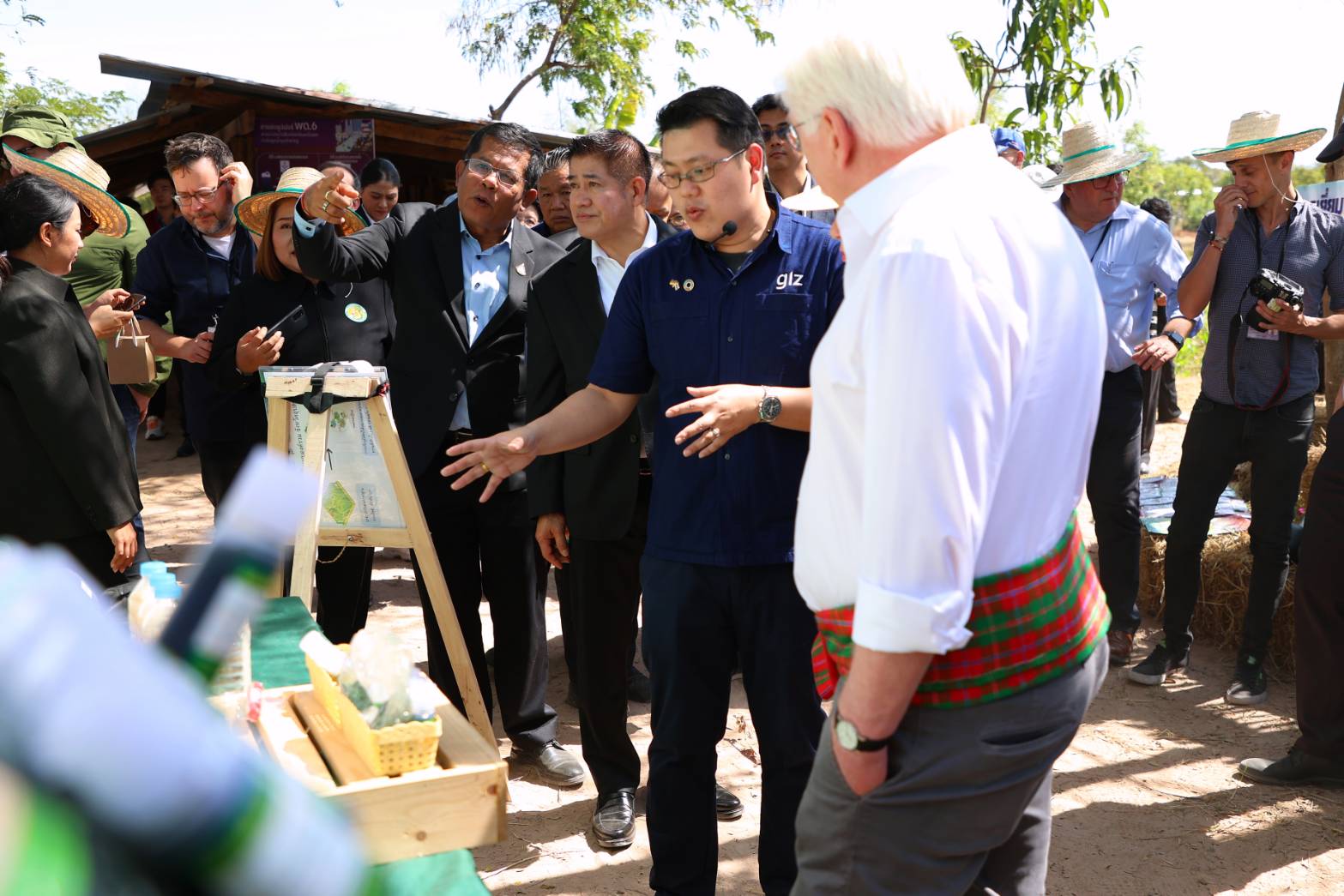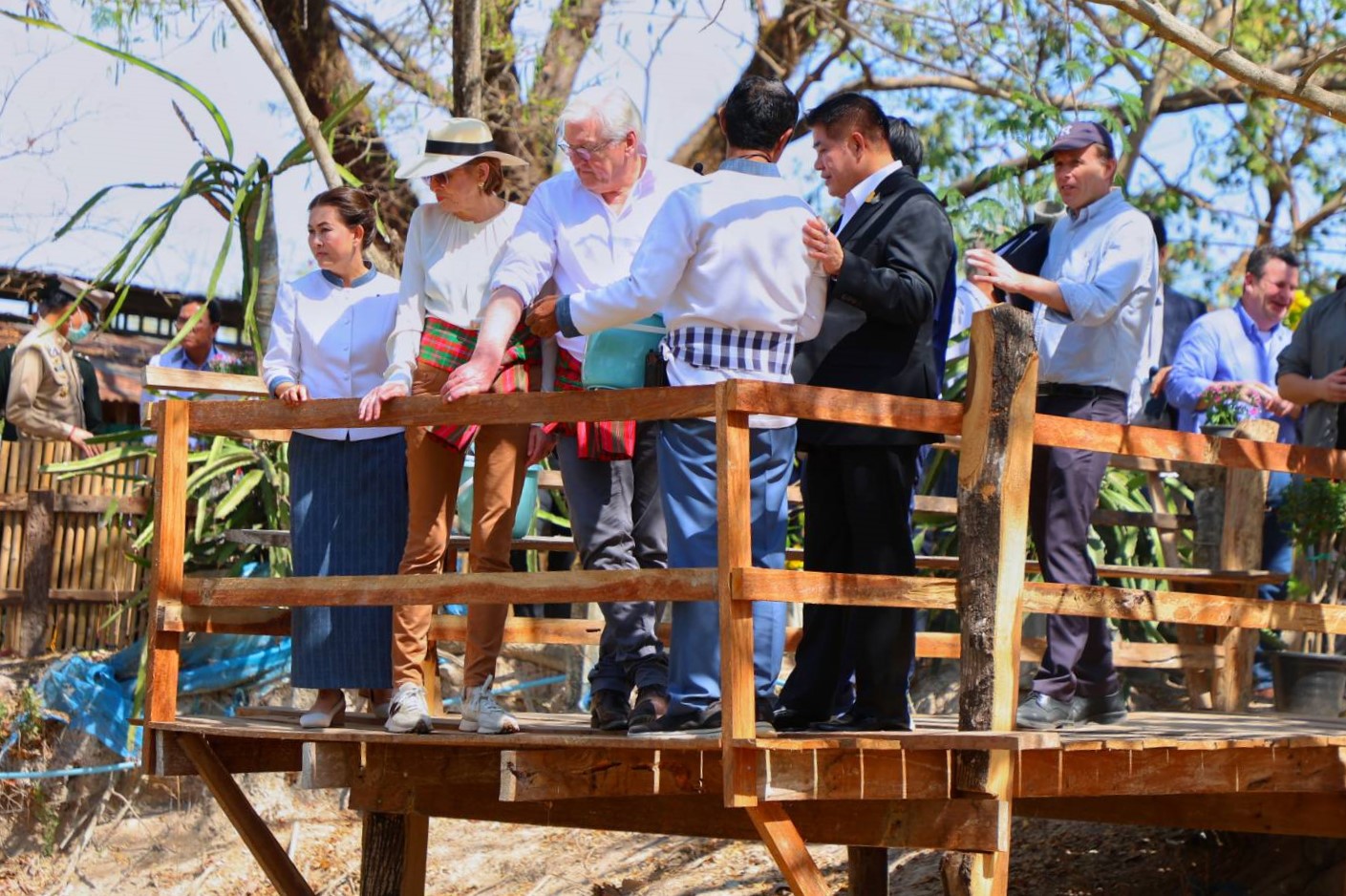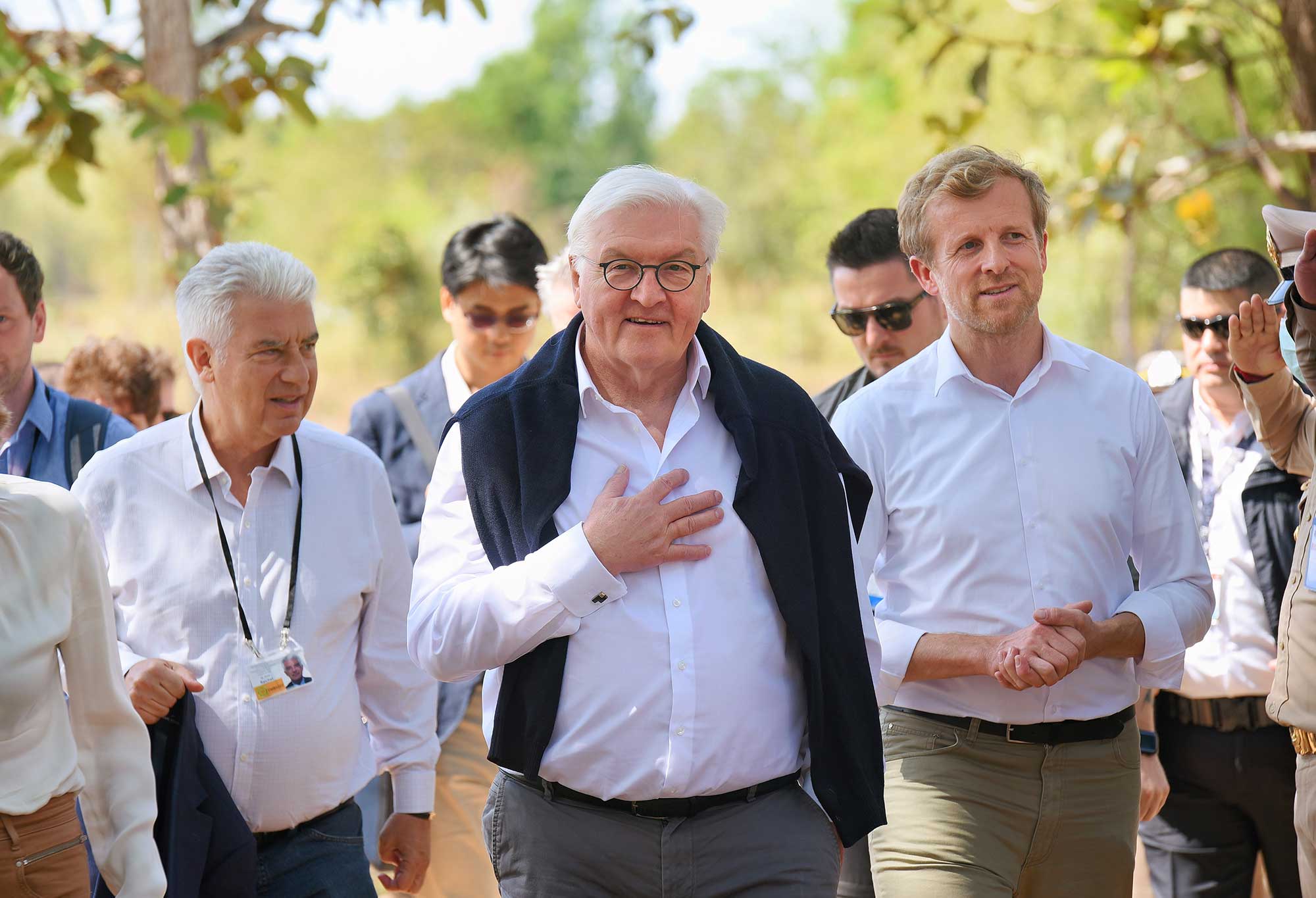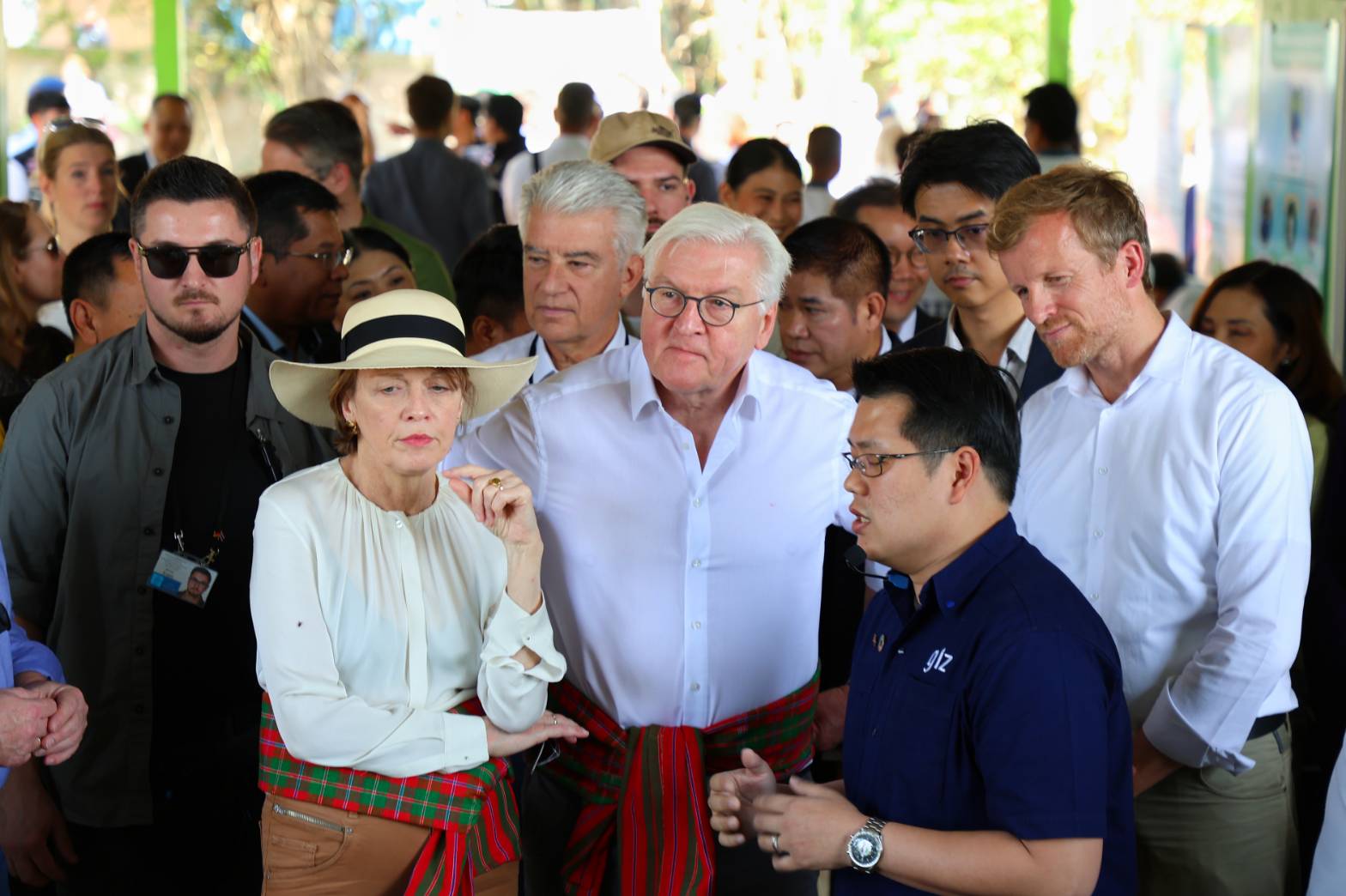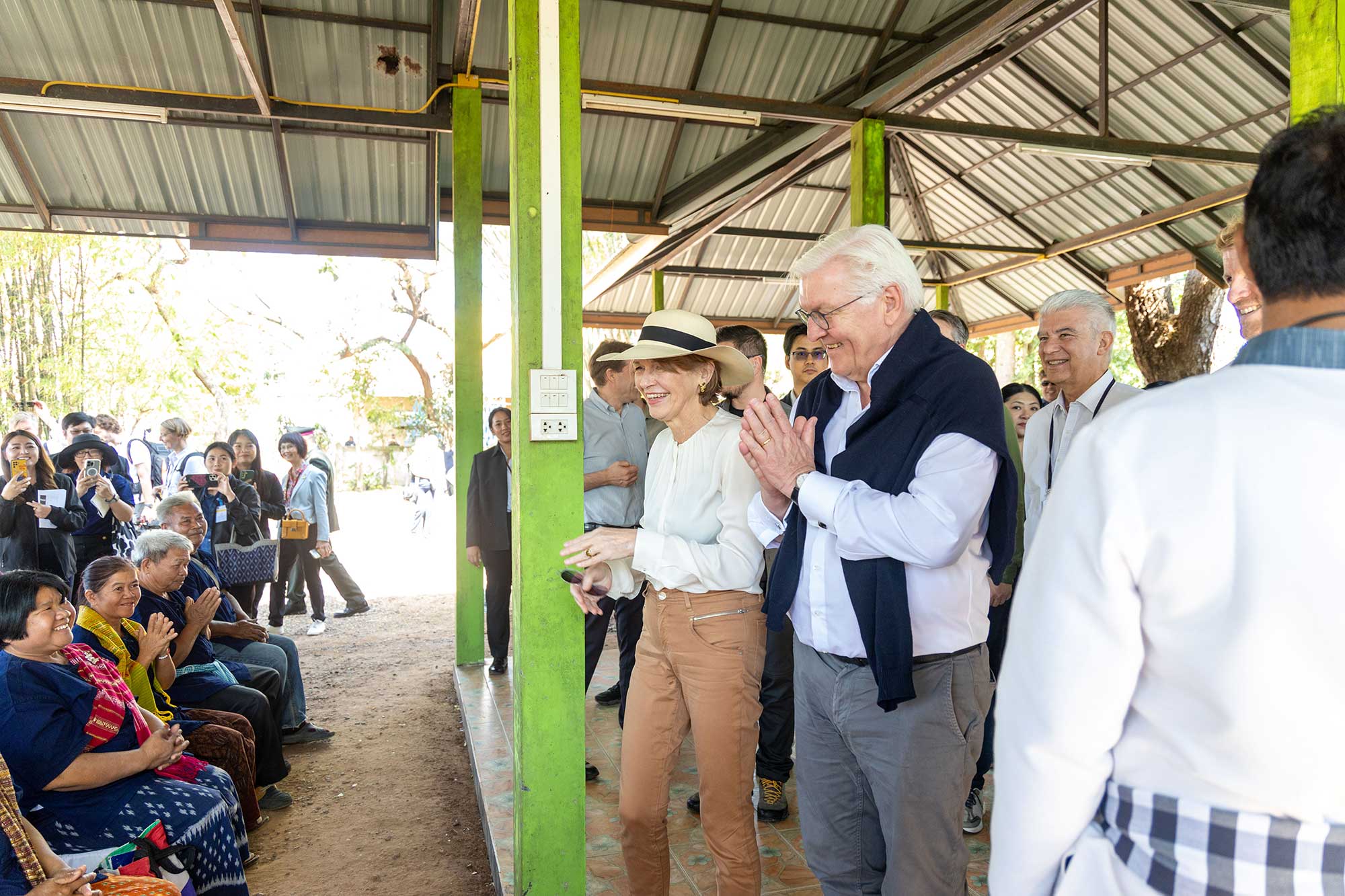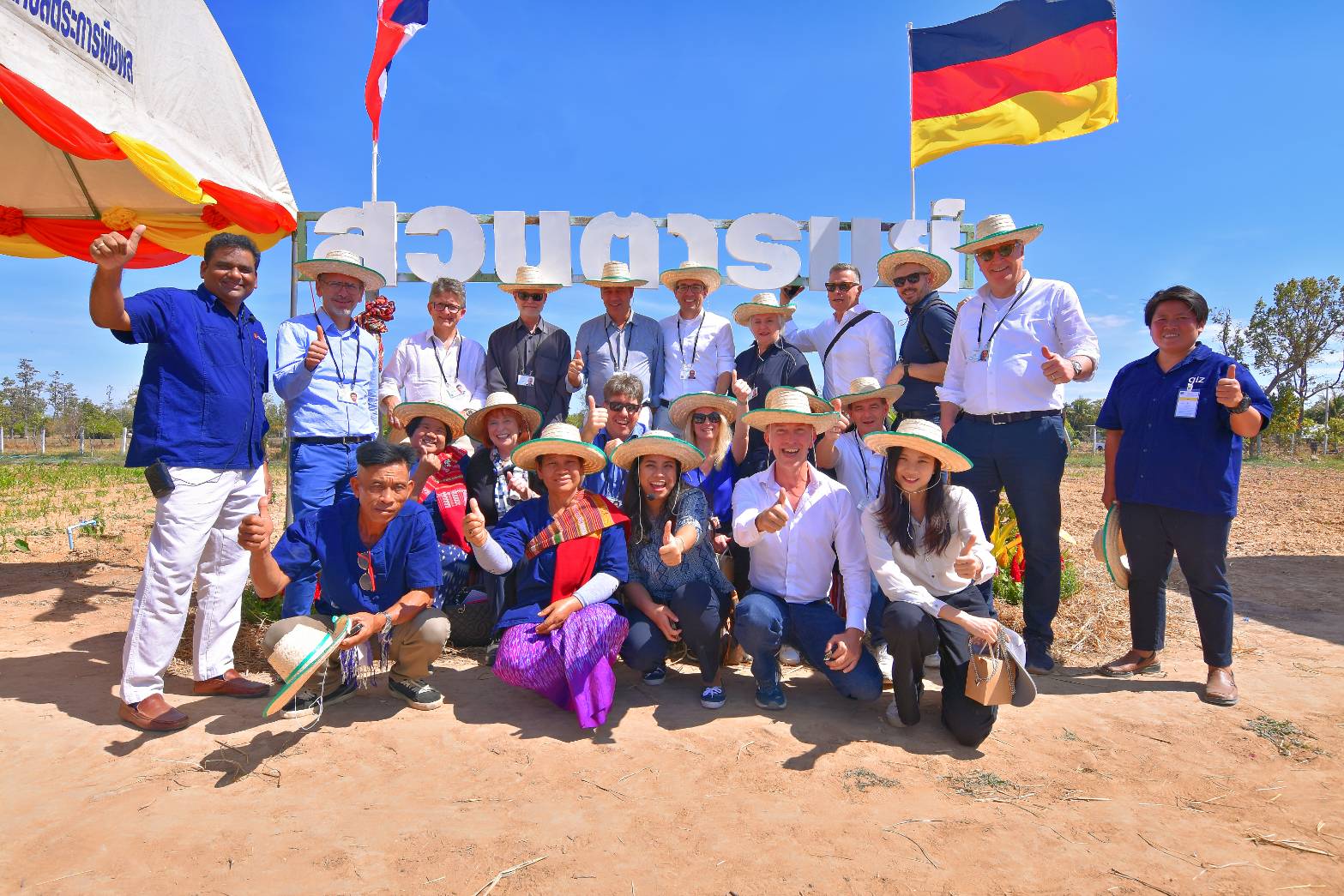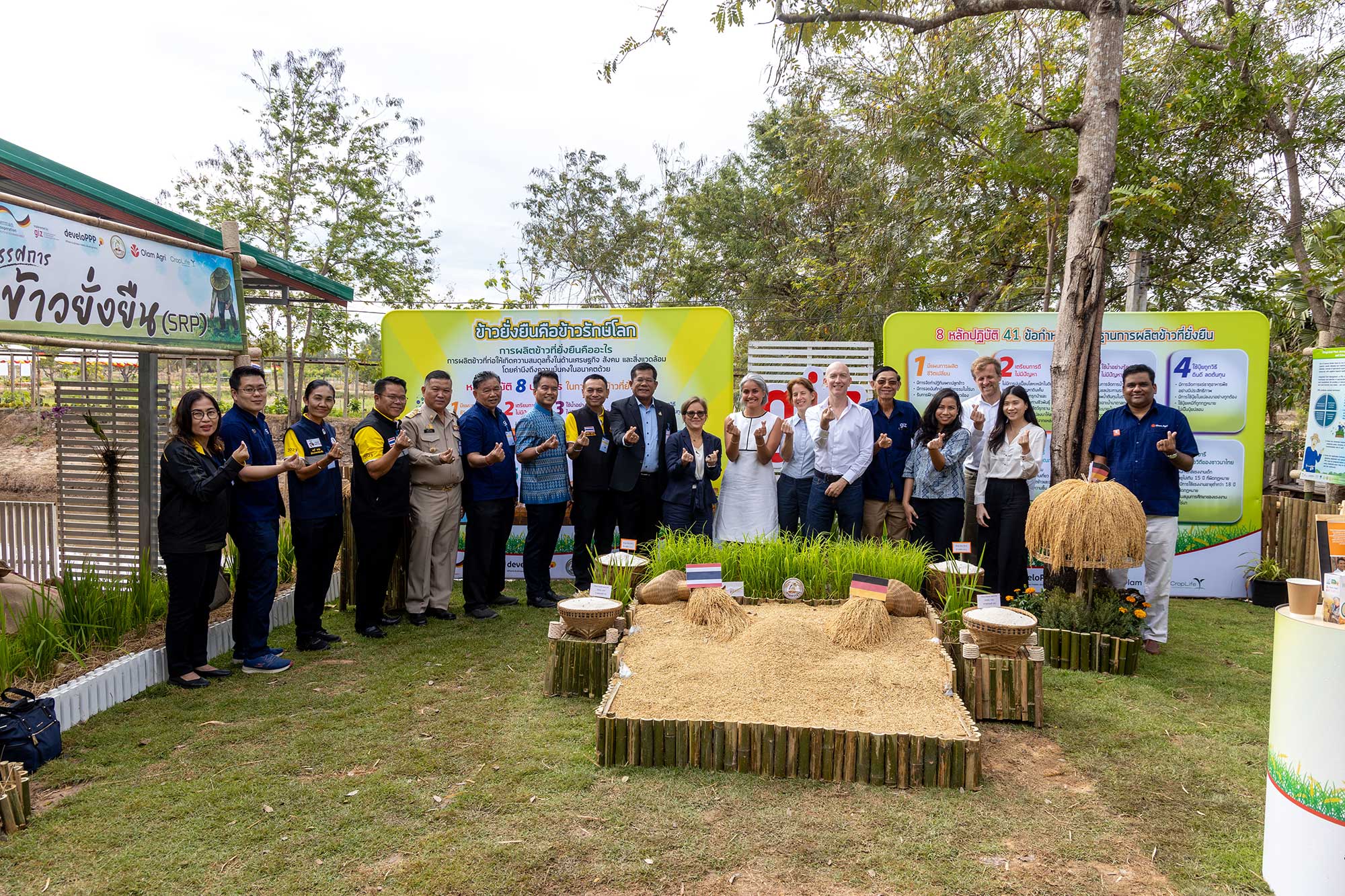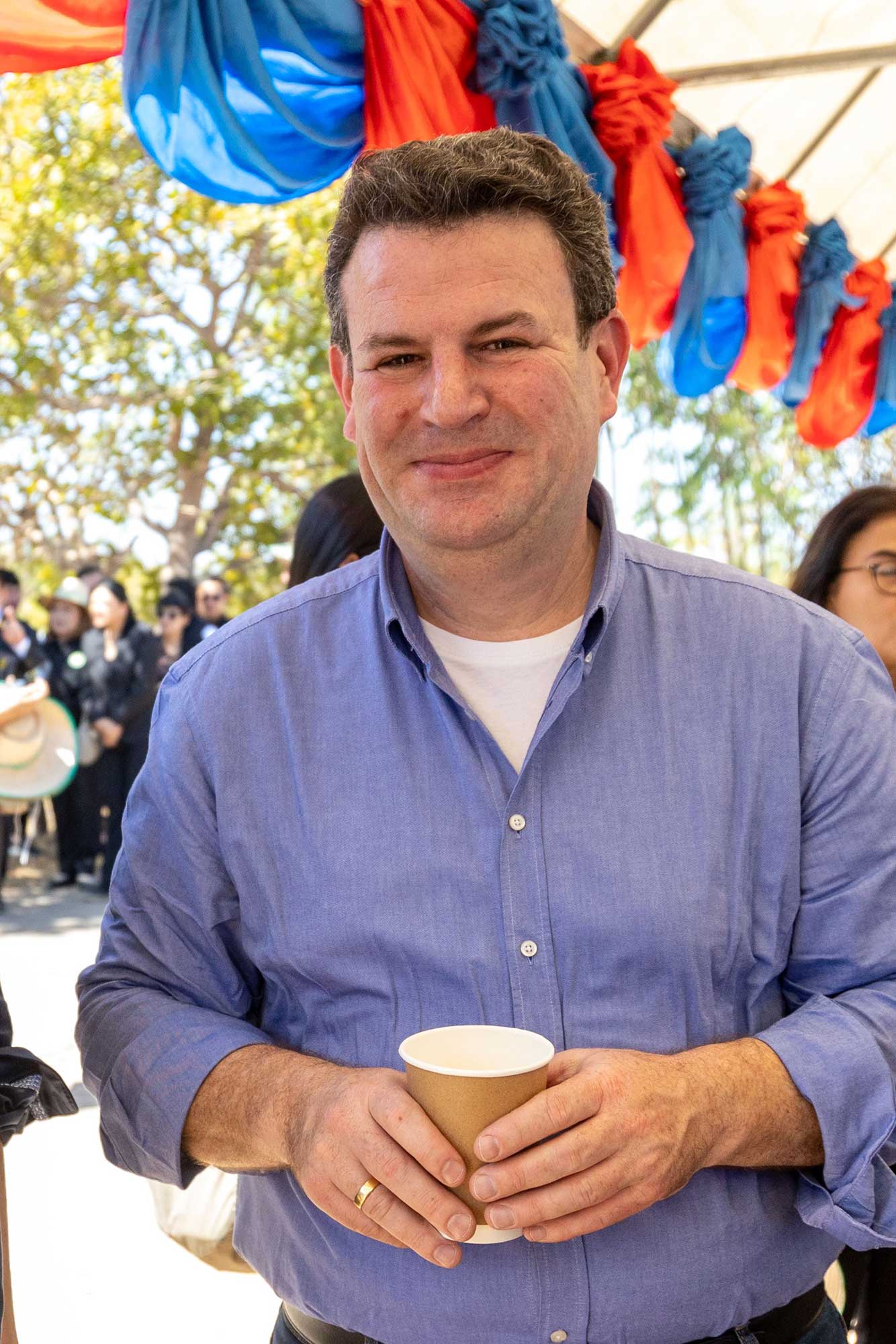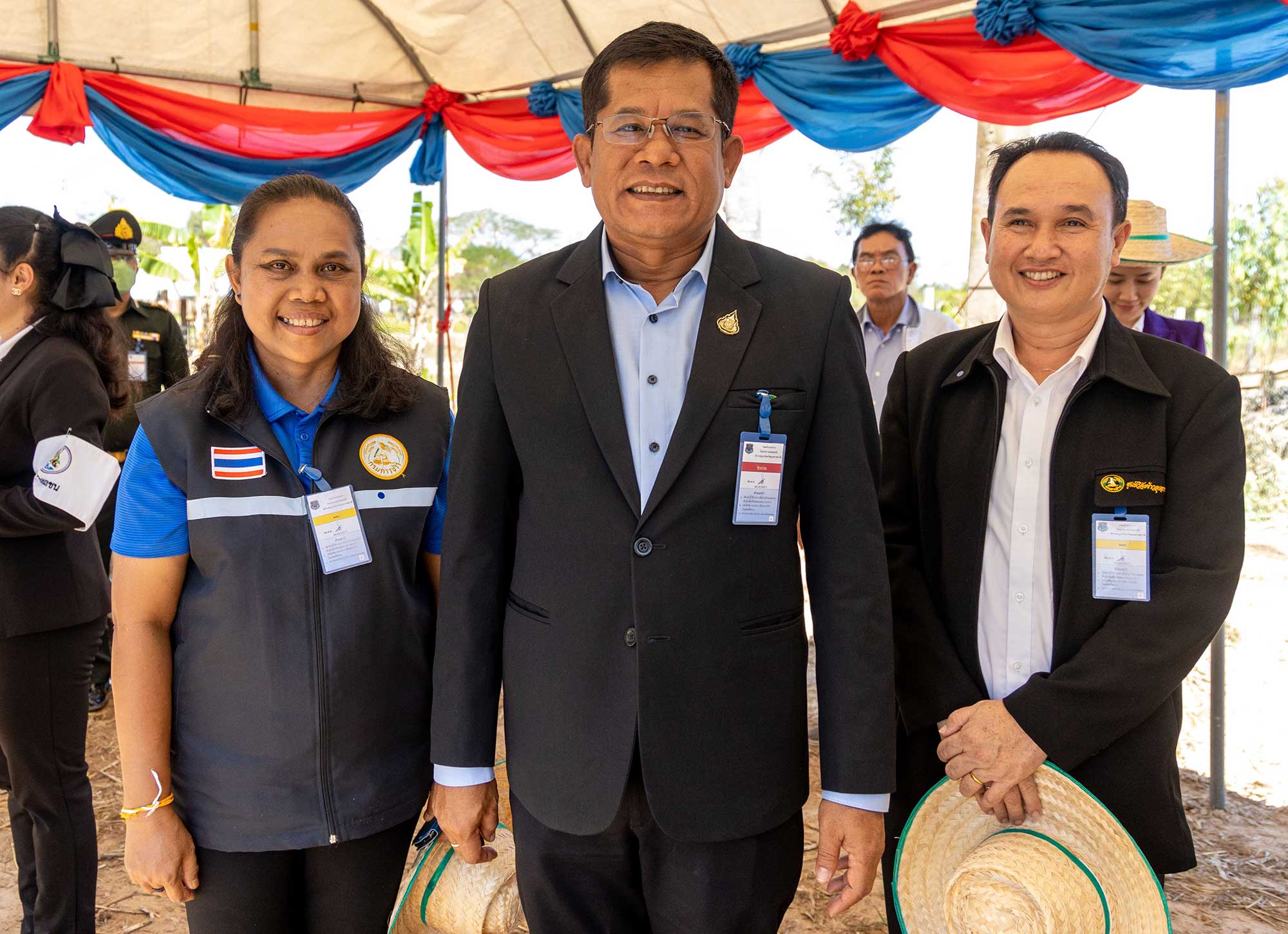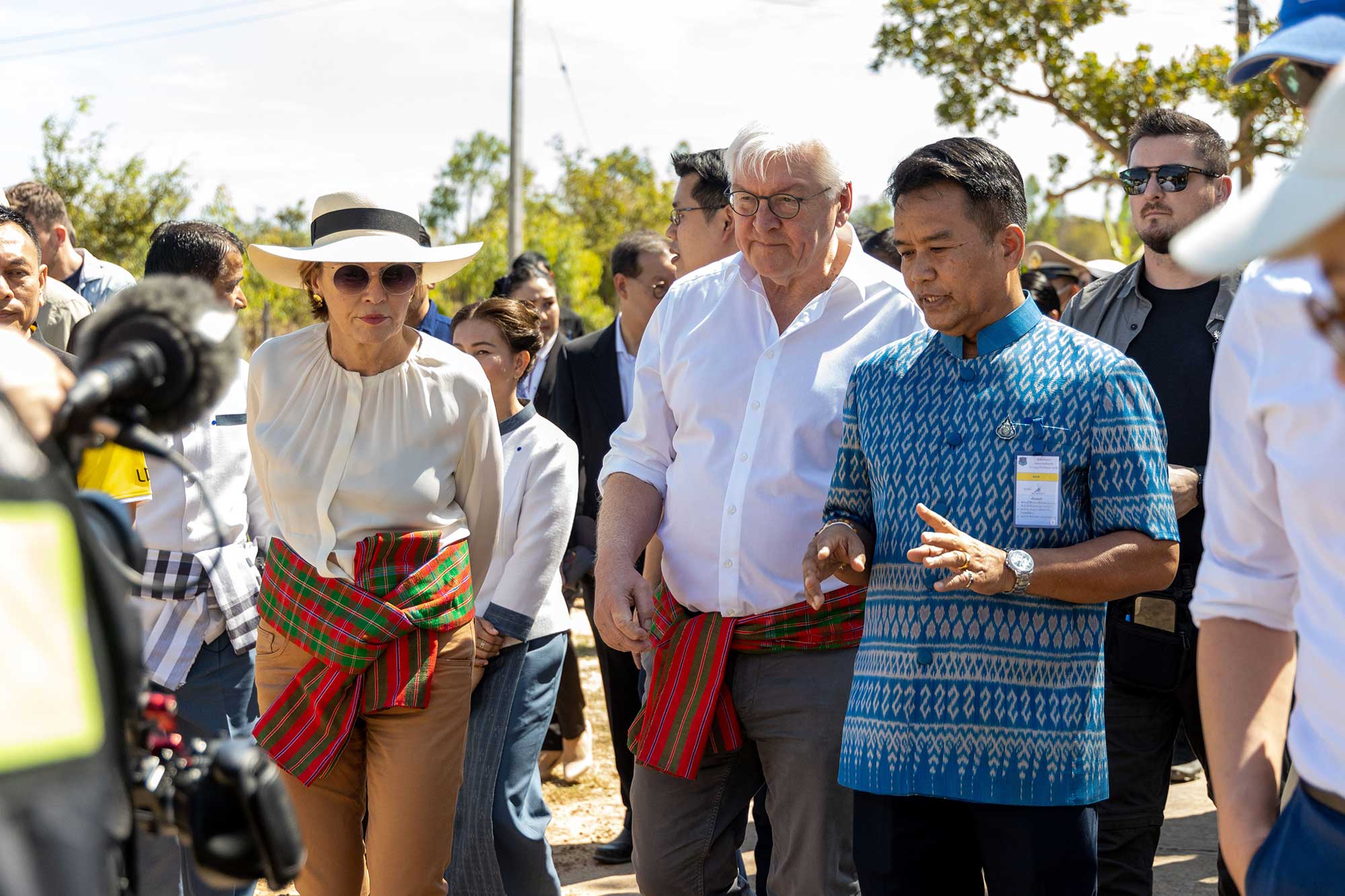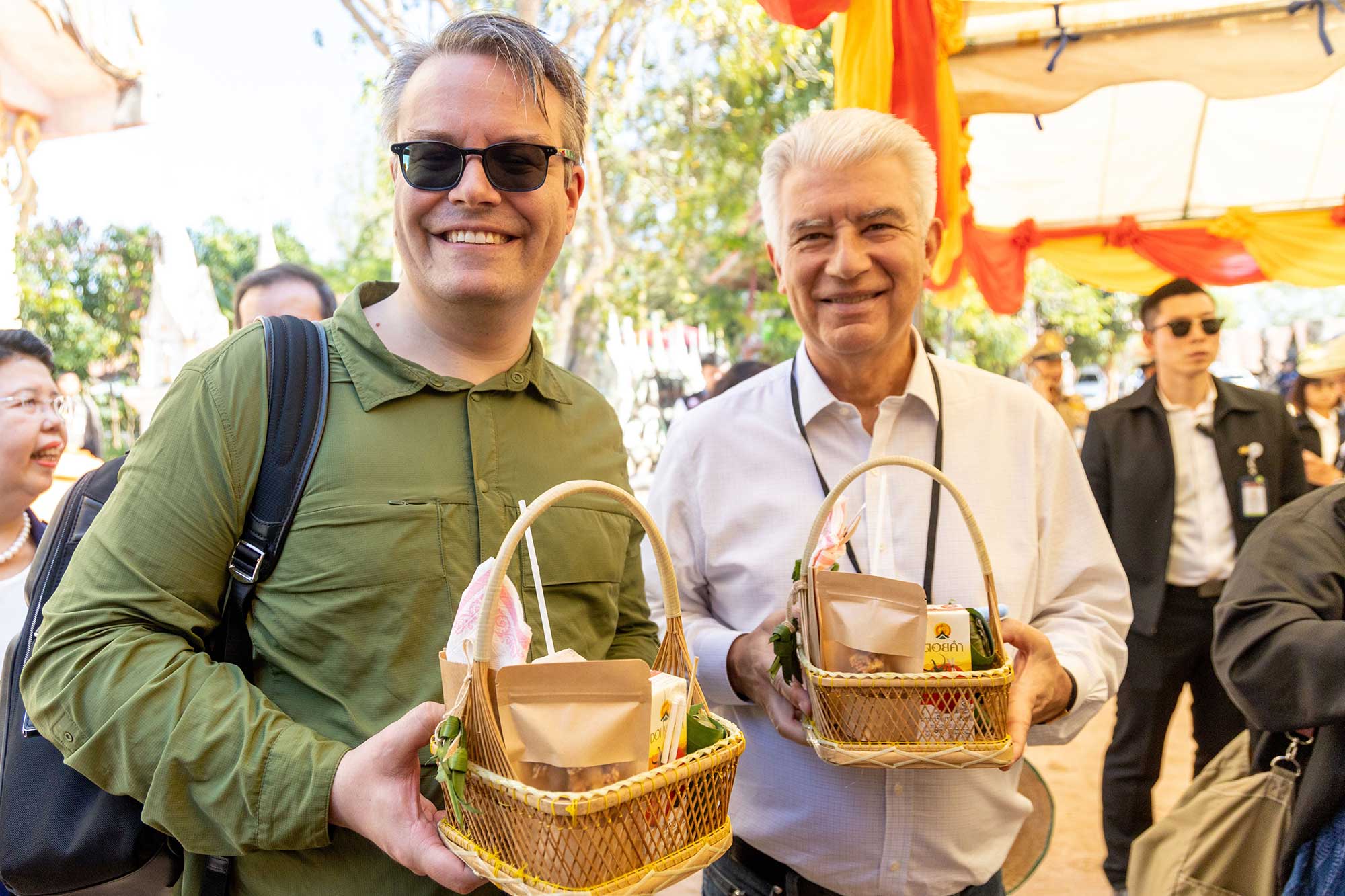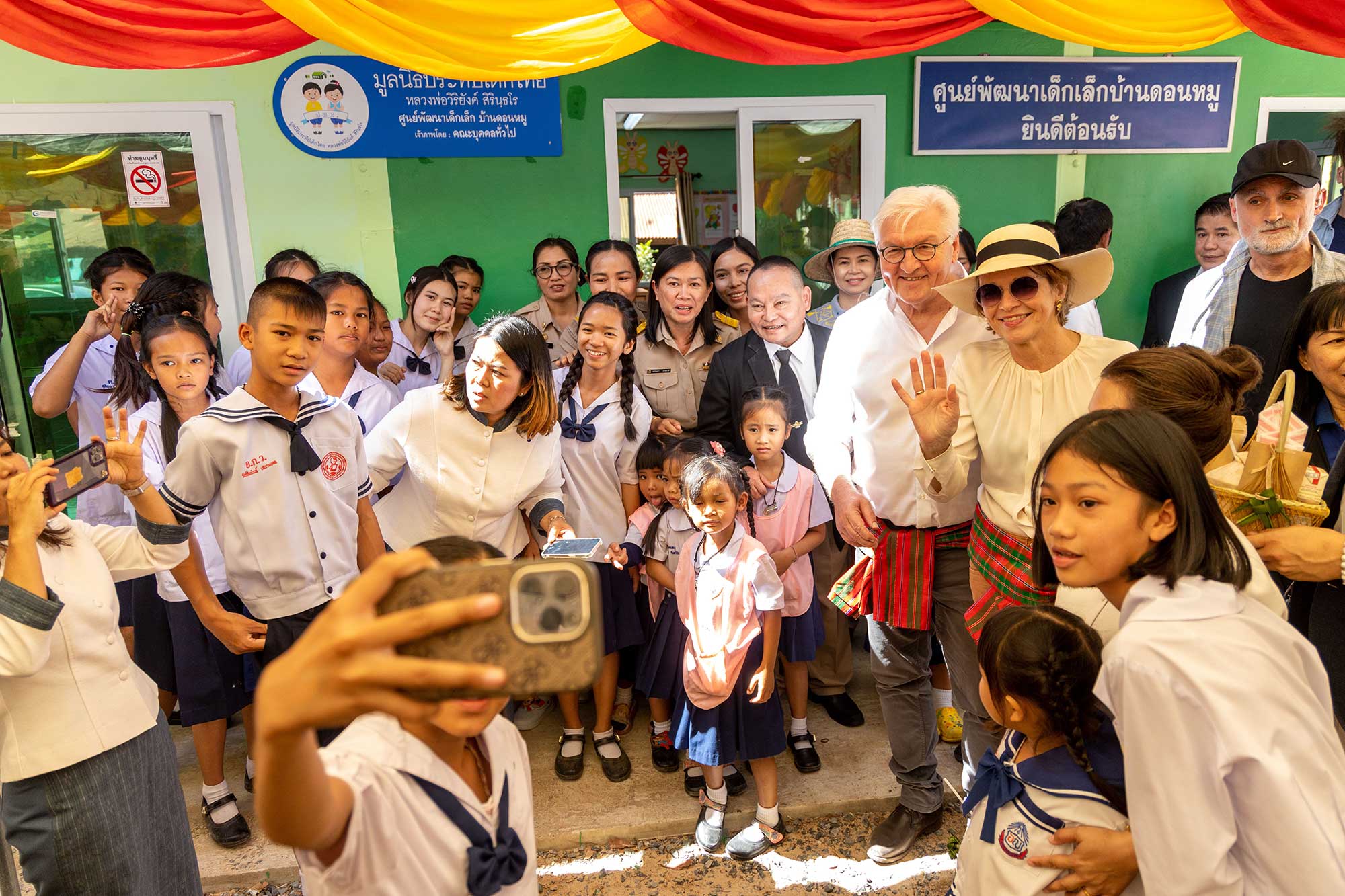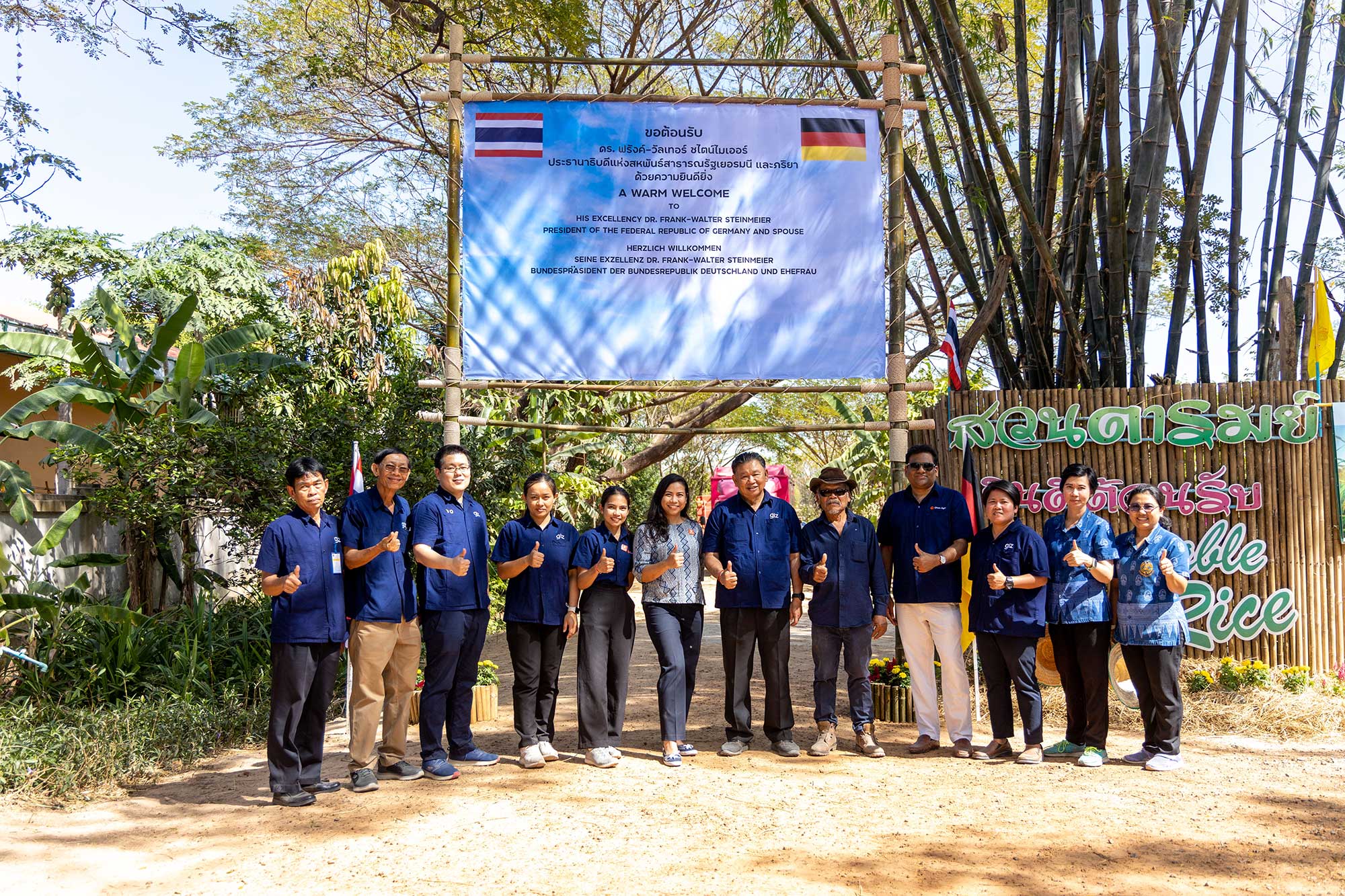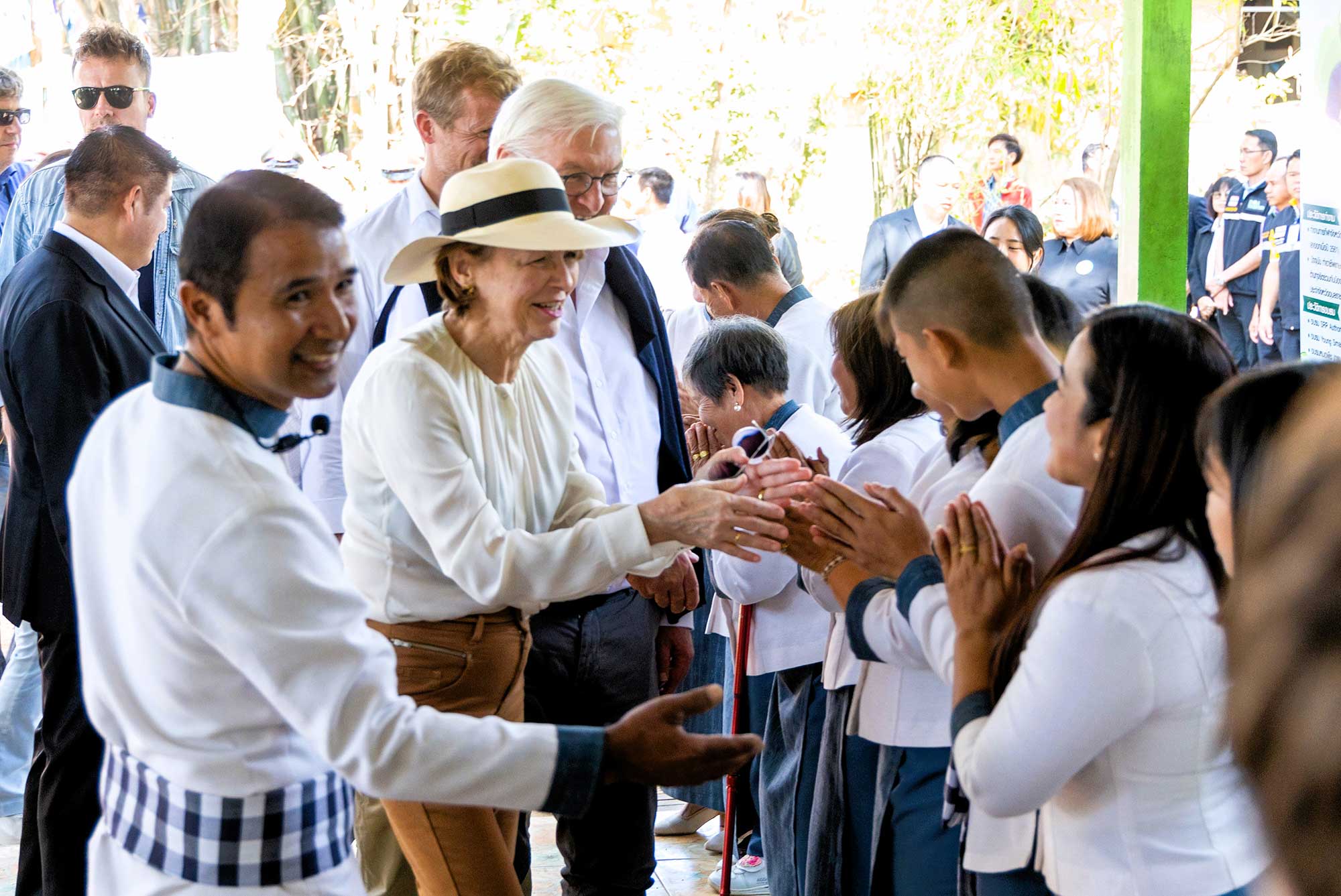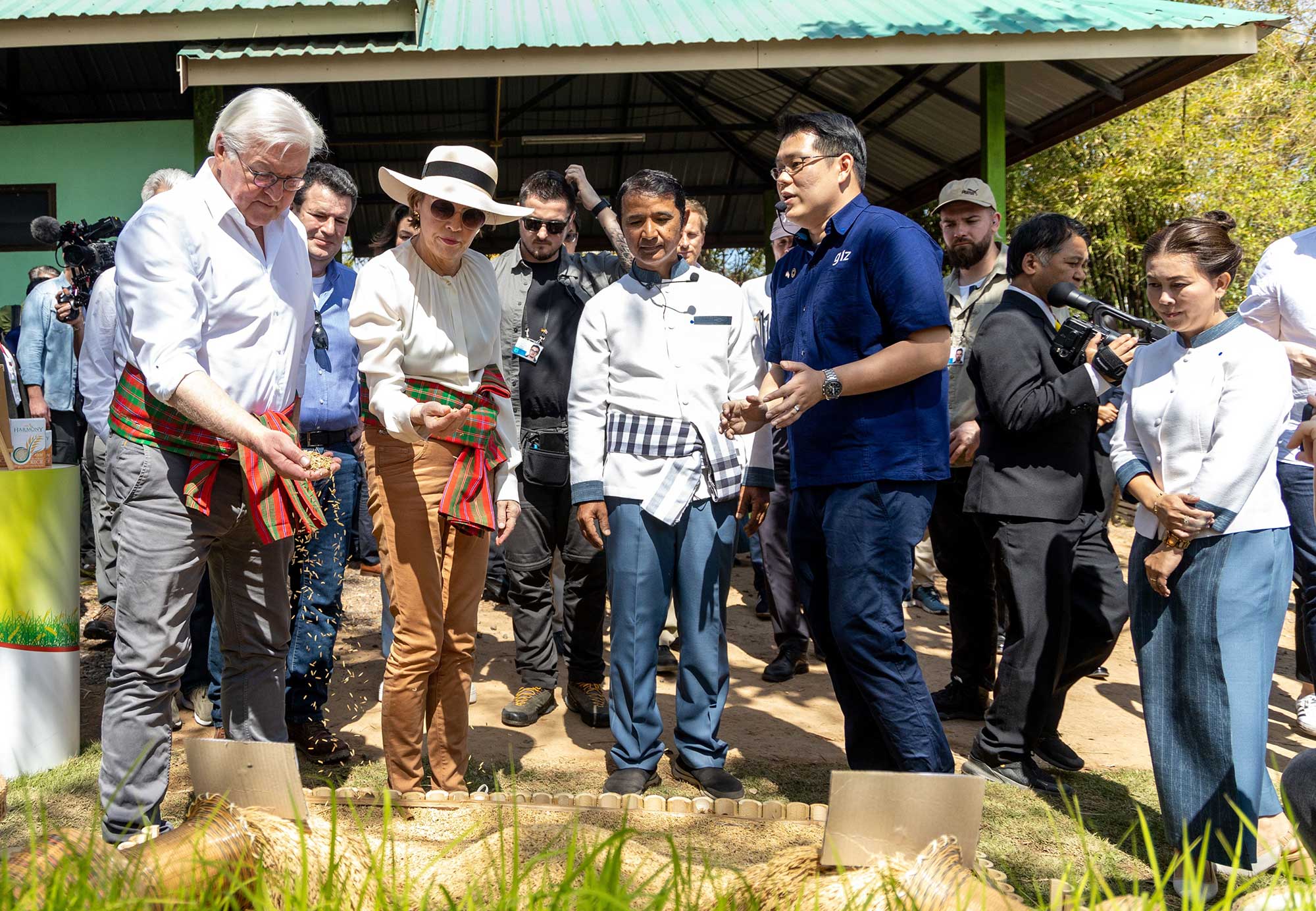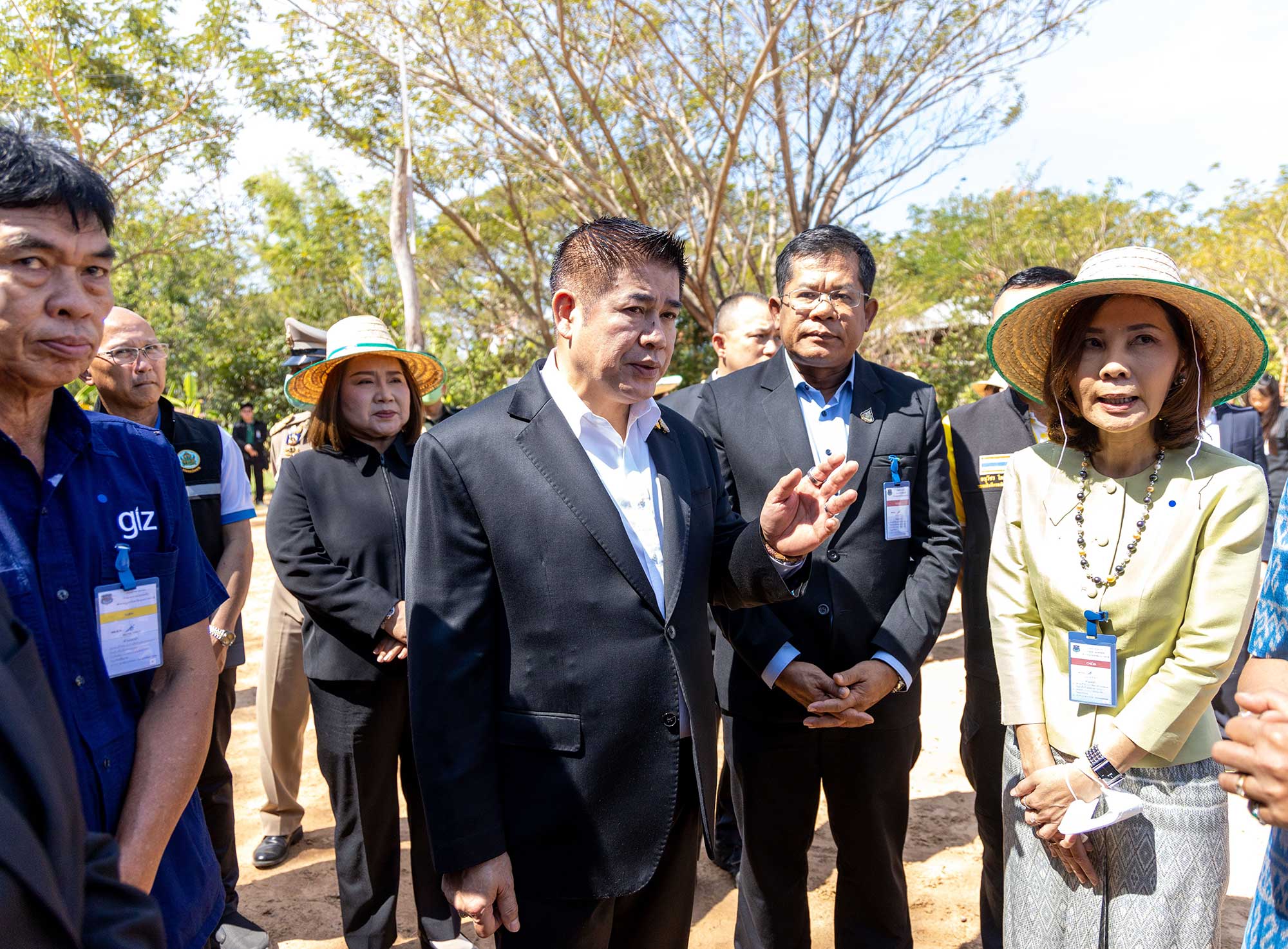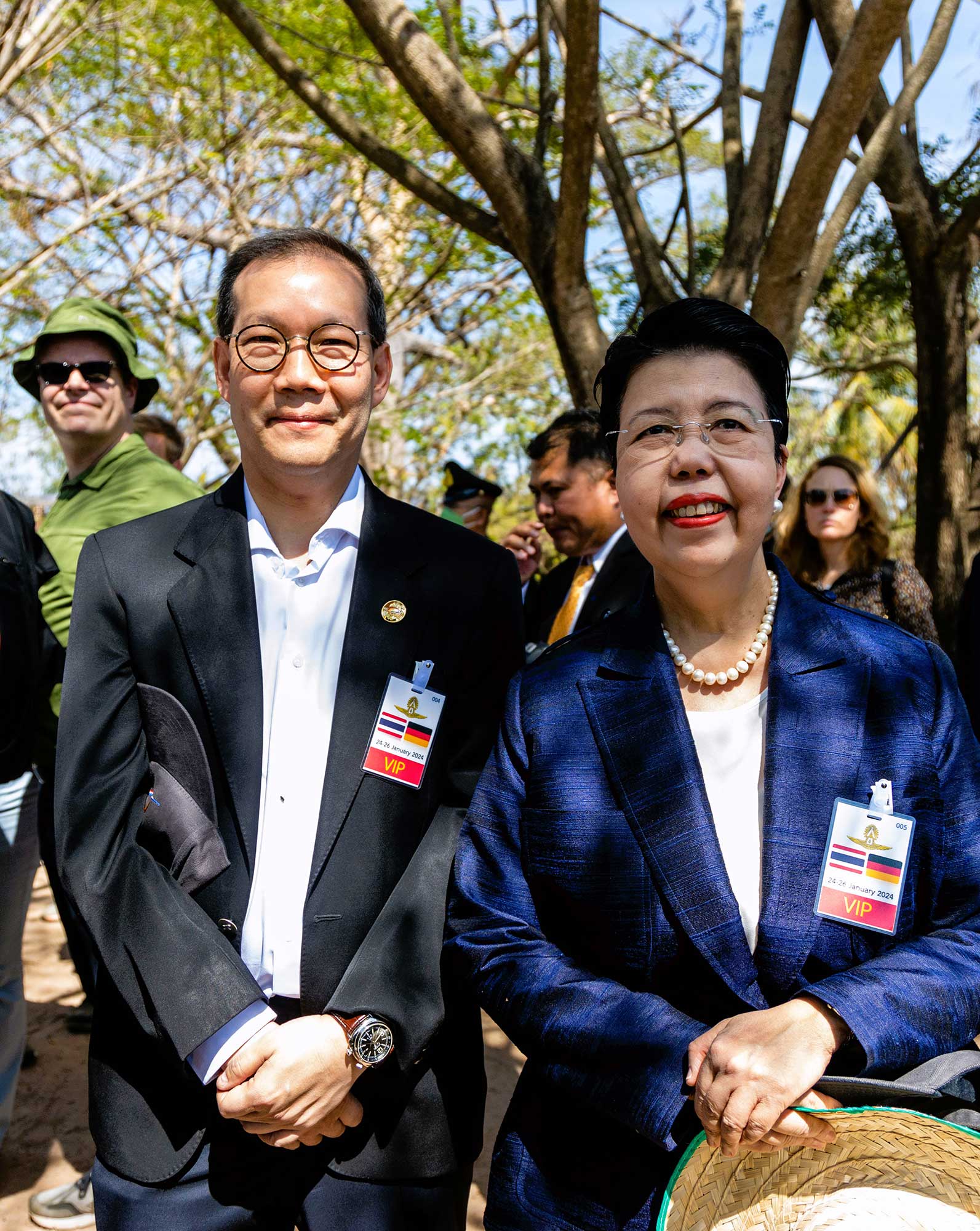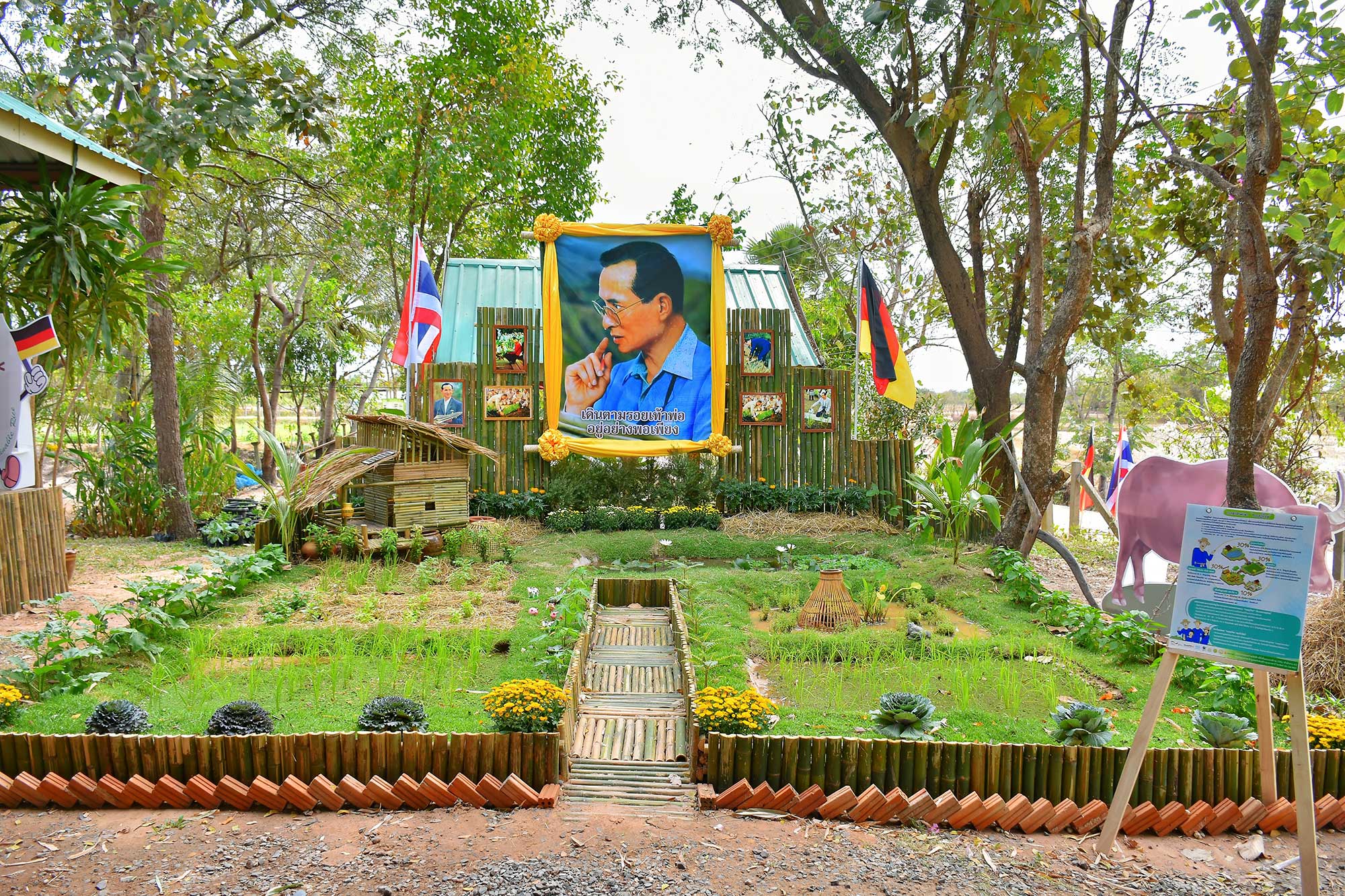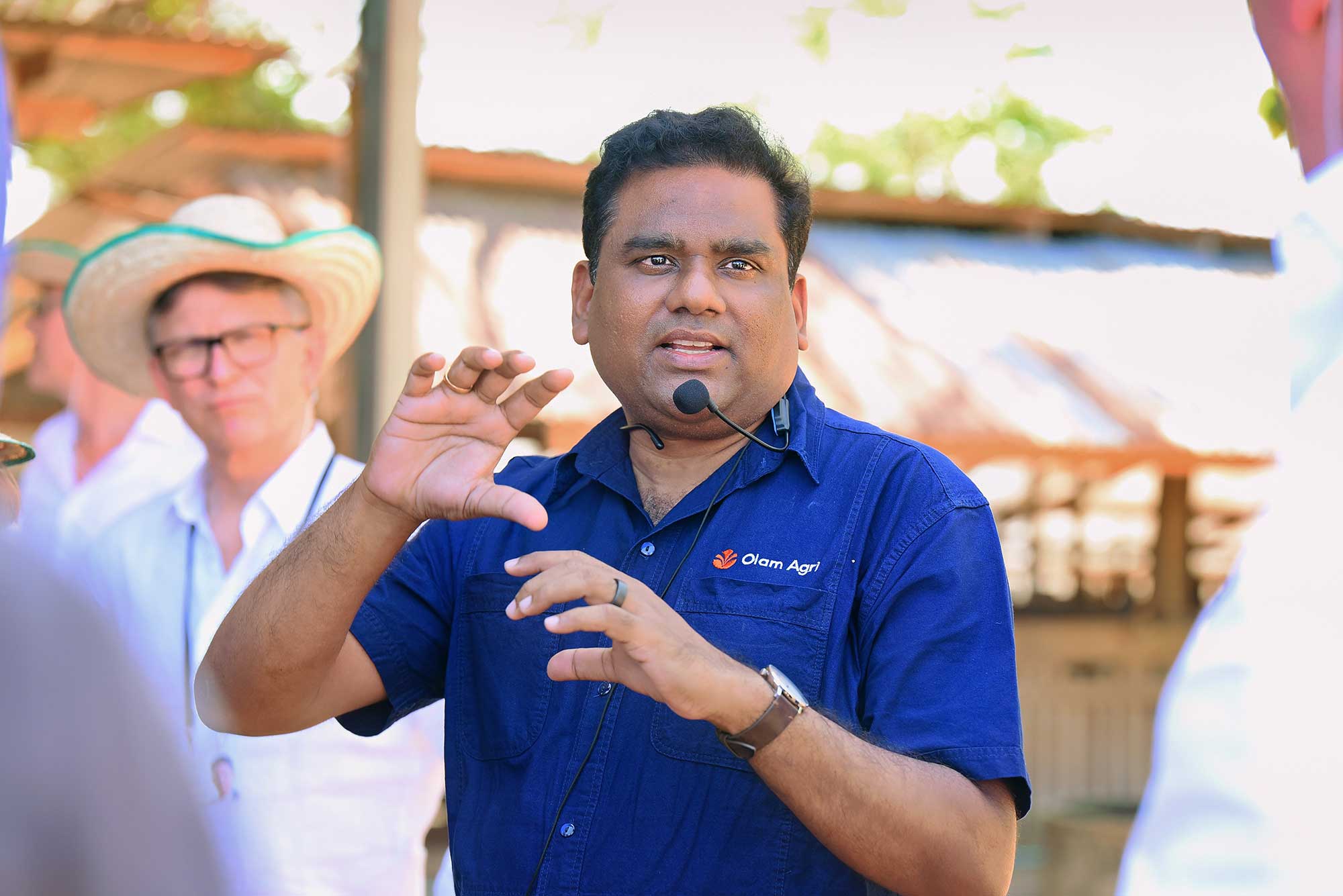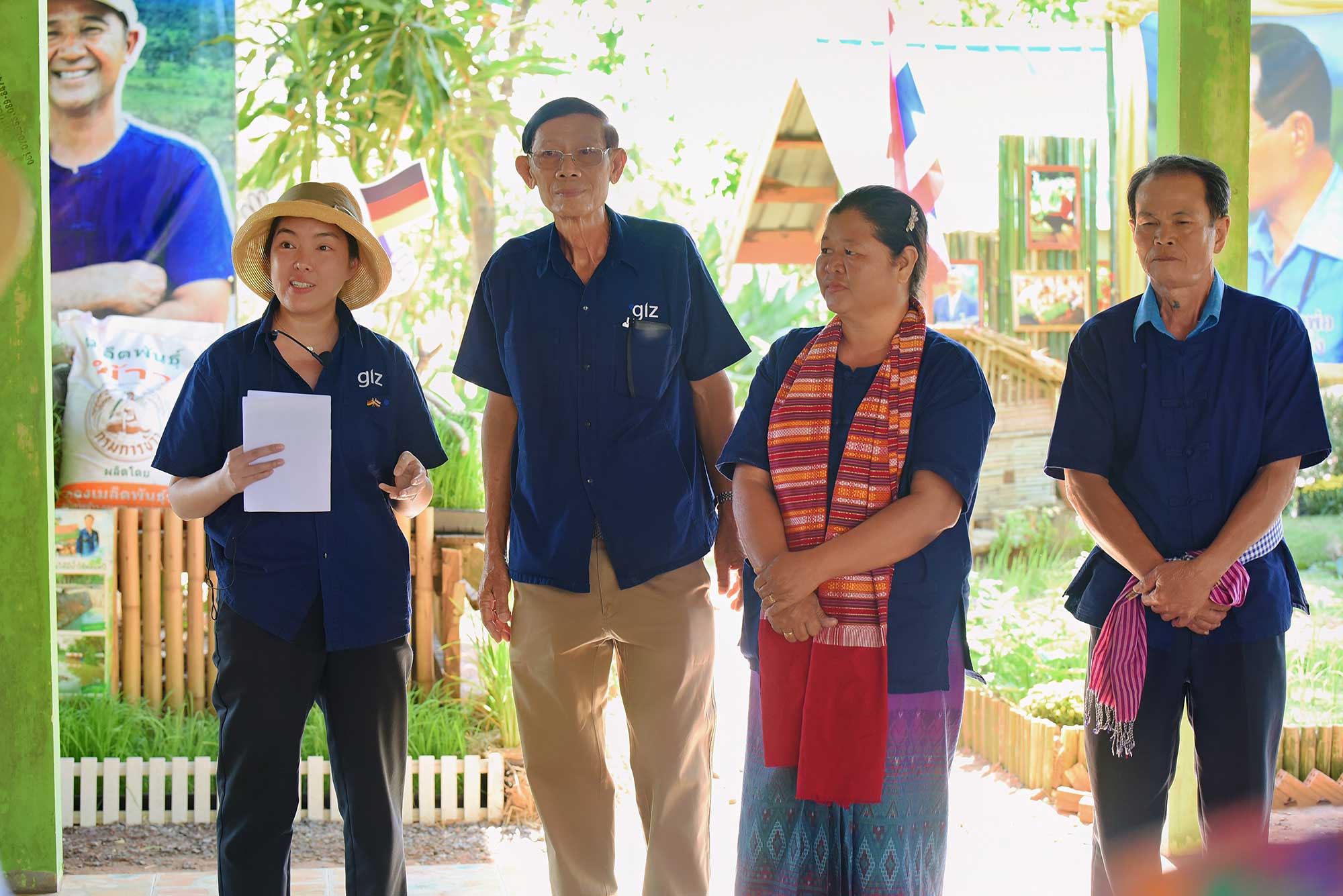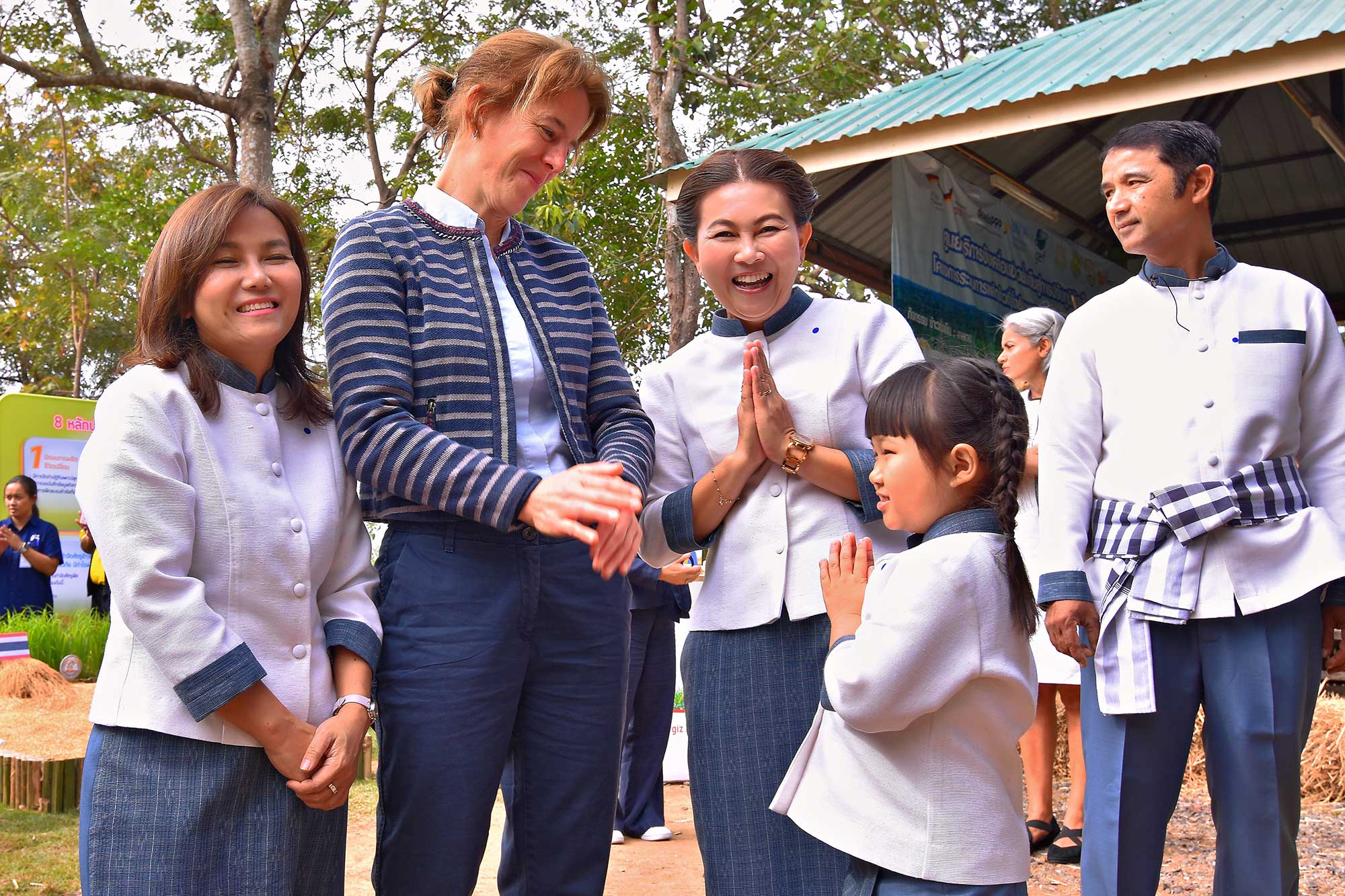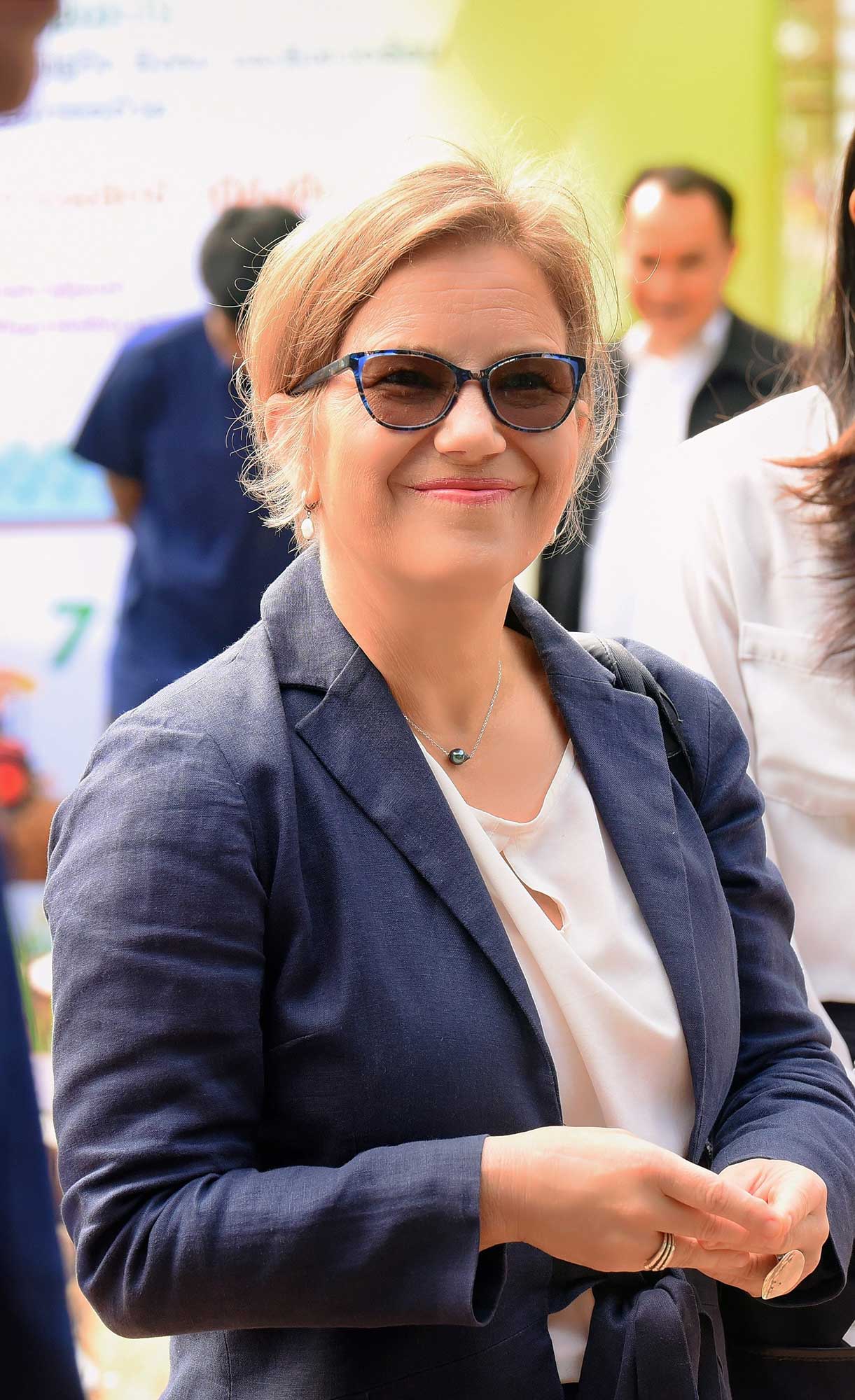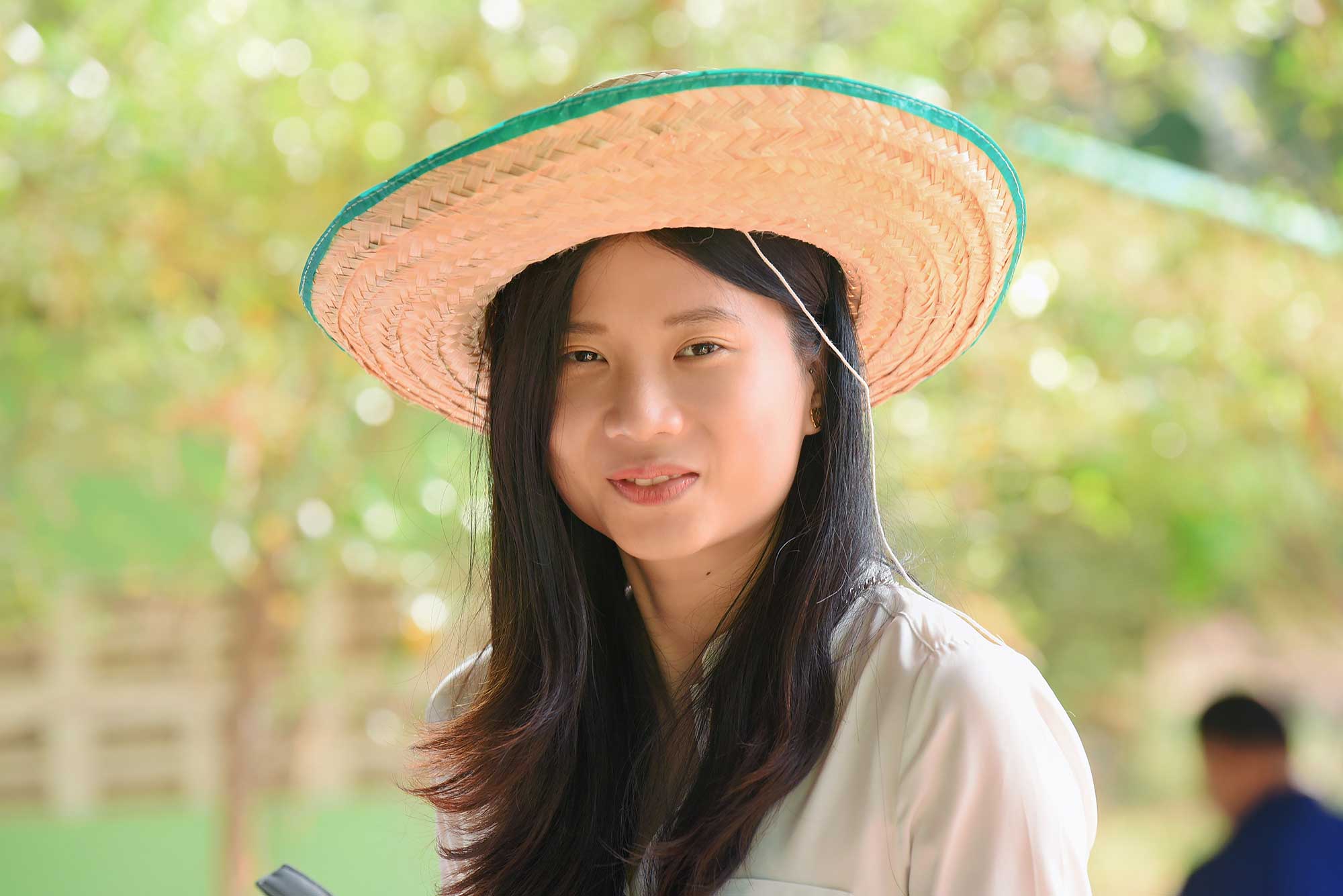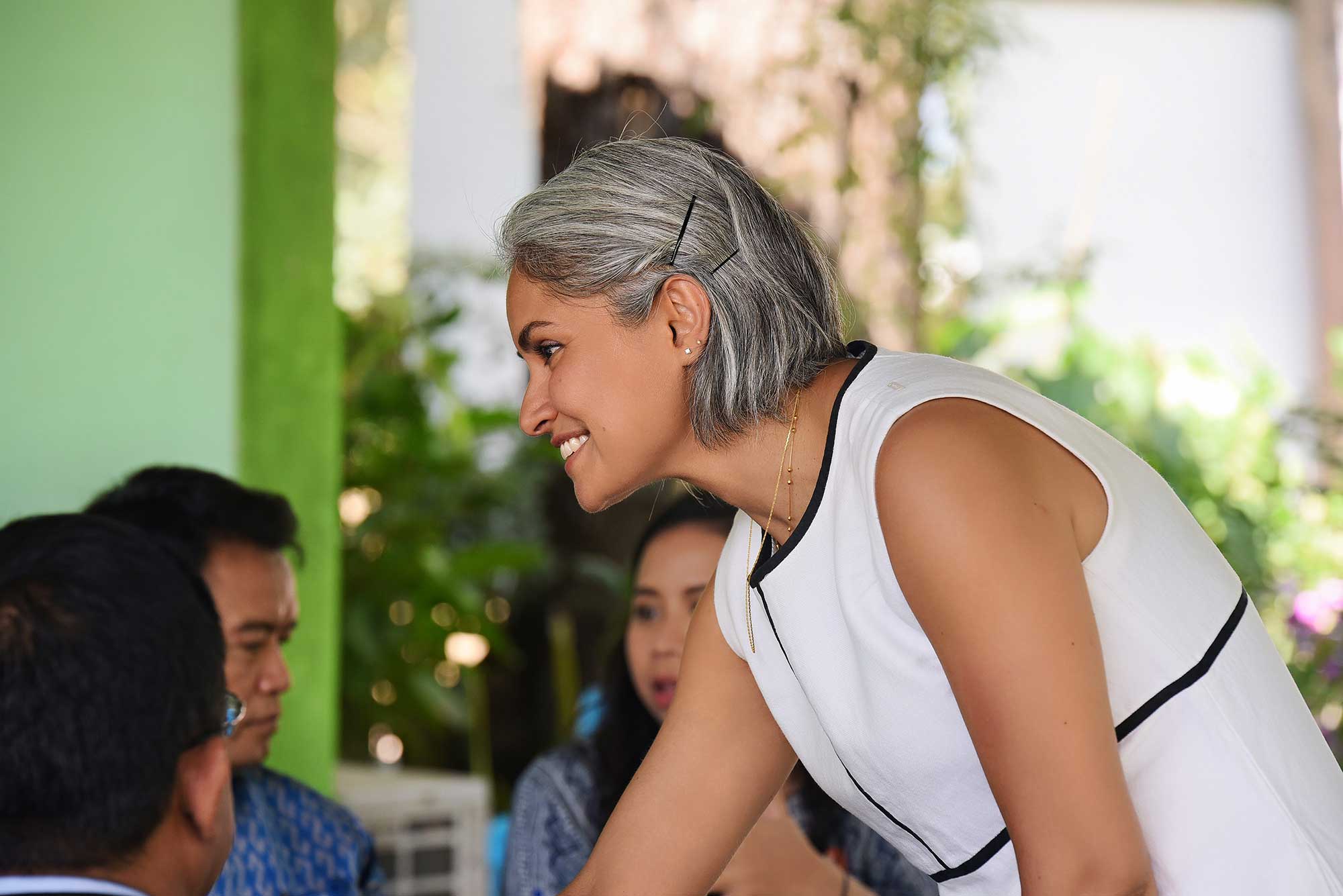Thai-German cooperation boosts rice farming practices towards climate-smart agriculture
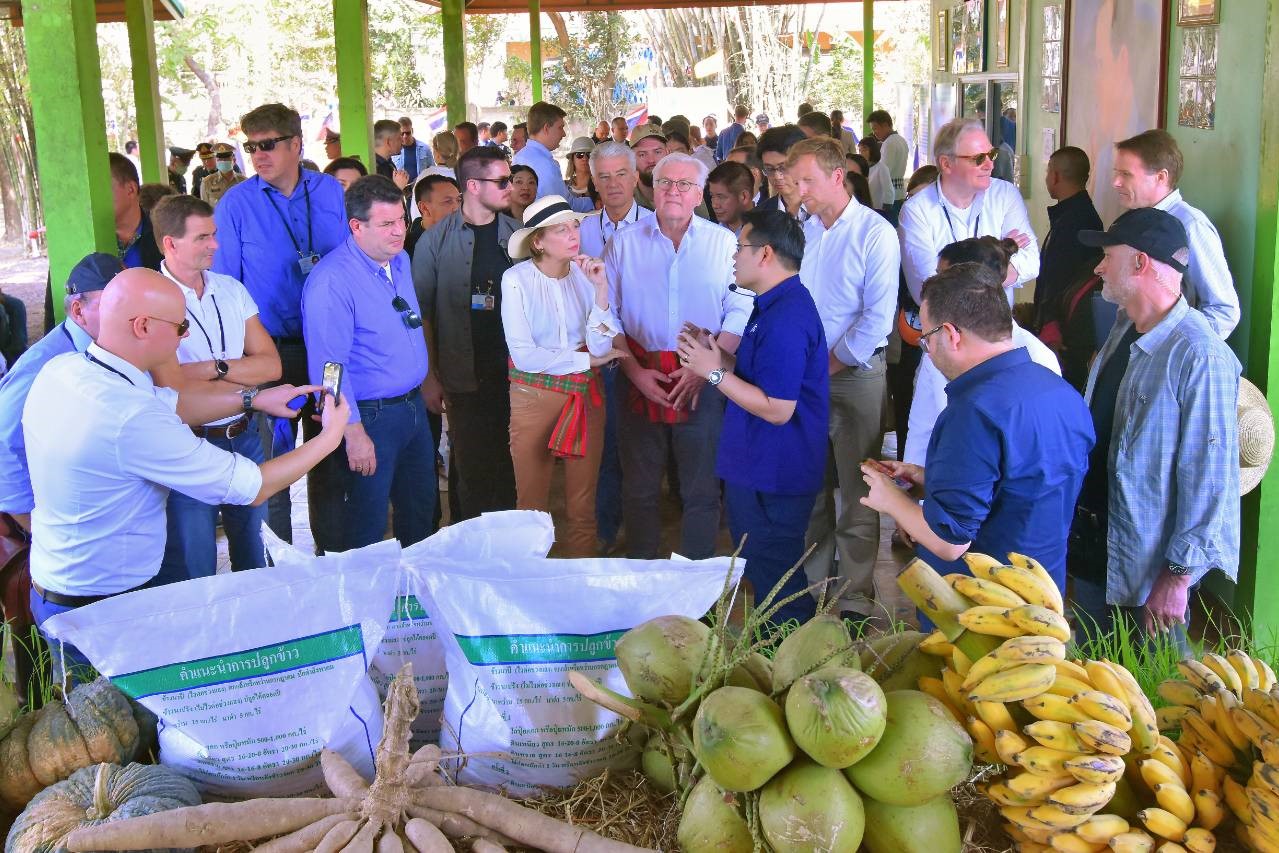
- The President of the Federal Republic of Germany visited the 35-rai integrated farmland showcasing methods being carried out under the Inclusive Sustainable Rice Landscapes project (ISRL) in Ubon Ratchathani.
- The ISRL project is implemented in two provinces: Ubon Ratchathani and Thailand’s upper northernmost province of Chiang Rai, to support biodiversity, soil regeneration and climate-smart agriculture.
- Smallholder farmers are encouraged to put into practice key farming techniques to effectively reduce not only costs but also chemical use in rice farming, while actively improving soil quality and stabilising the ecosystem.
Presidential visit highlights joint efforts to tackle environmental, sustainable development challenges
Ubon Ratchathani, 26 January 2024 – The President of the Federal Republic of Germany, Dr Frank-Walter Steinmeier, visited Thailand’s largest rice-farming province in the country’s lower Northeast.
With over 4.2 million rai-rice farmland, Ubon Ratchathani and Chiang Rai has been singled out to implement a Thai-German cooperation development project aimed at transforming rice production value chains toward climate-smart agriculture.
The German president and his delegation met Thai smallholder farmers at Suan Ta Rom Demonstration Farm in Trakan Phuet Phon District in Ubon Ratchathani. The 35-rai integrated farmland showcases methods carried out in accordance with the Inclusive Sustainable Rice Landscapes project (ISRL). On hand to welcome Dr Steinmeier were Capt Thammanat Prompao, Minister of Agriculture and Agricultural Cooperatives, Nadhavathna Krishnamra, Ambassador of Thailand to Berlin, and other executives from the ministry and province.
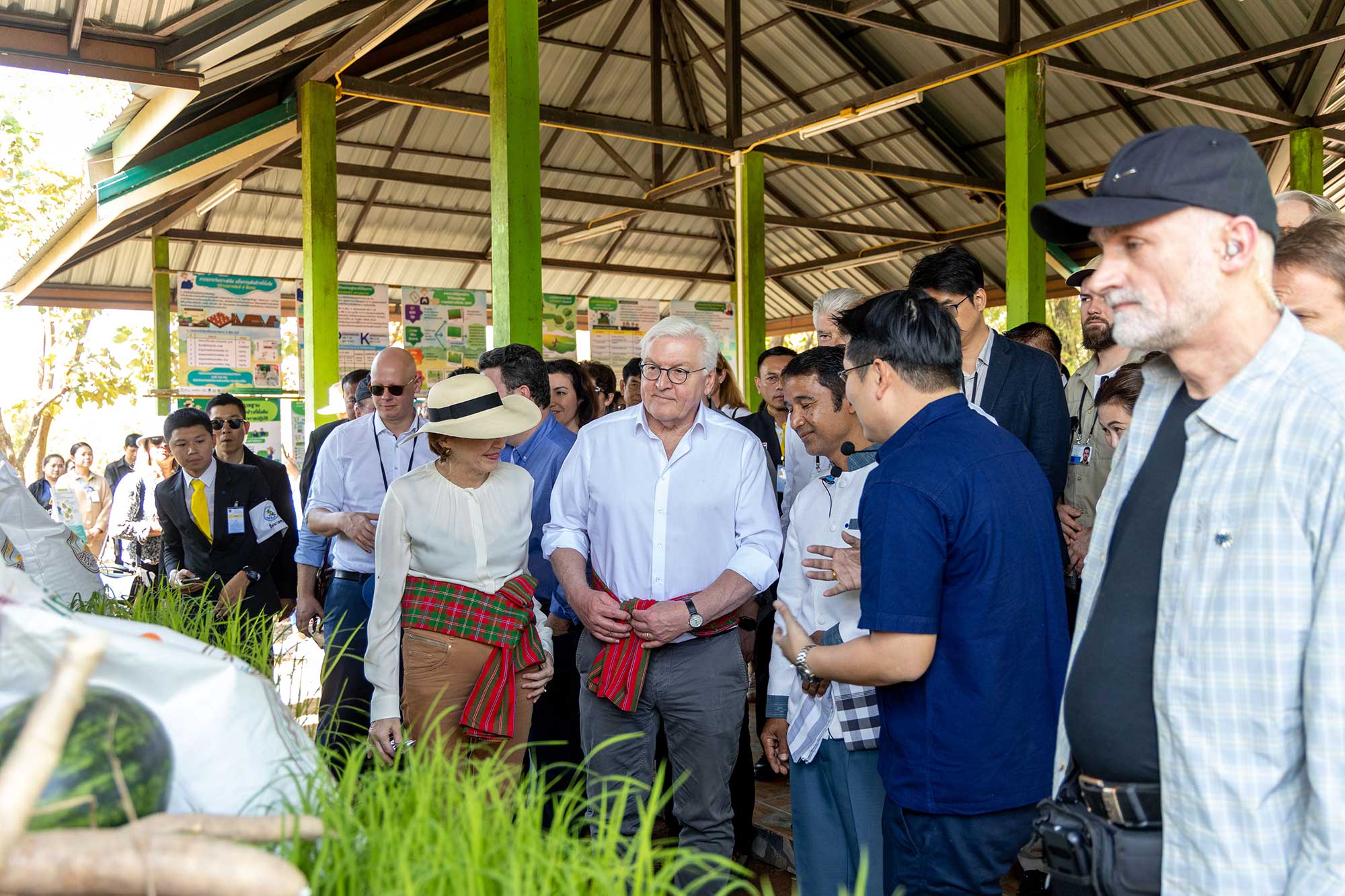
Thailand is one of the world’s leading rice producers and exporters, particularly of Hom Mali rice, producing an estimated 30-million tonnes of rice annually and exporting up to 10 million tonnes. However, increasing rice production and monocropping over the past decades and lack of sustainable landscape management have resulted in significant environmental degradation, greenhouse gas emissions, declining biodiversity, and weakened ecosystems.
Building on the successes of previous initiatives supported by GIZ in cooperation with the Thai Rice Department under the Ministry of Agriculture and Cooperatives, and OLAM Agri, a multinational agrifood company, since 2018 through the develoPPP programme of the German Federal Ministry for Economic Cooperation and Development (BMZ), the Global Environment Facility-funded, United Nations Environment Programme-implemented and GIZ-executed project now aims to upscale farming practices which can generate short-term and long-term benefits for farmers, communities and landscapes.
“The project is an extraordinary and outstanding example of cooperation between Germany and Thailand in the fight against climate change. In talking to the farmers, I learned that sustainable rice cultivation requires less water and pesticides, enables higher incomes and saves emissions. Everyone benefits from this,” the German President said after visiting the ISRL demonstration farm.
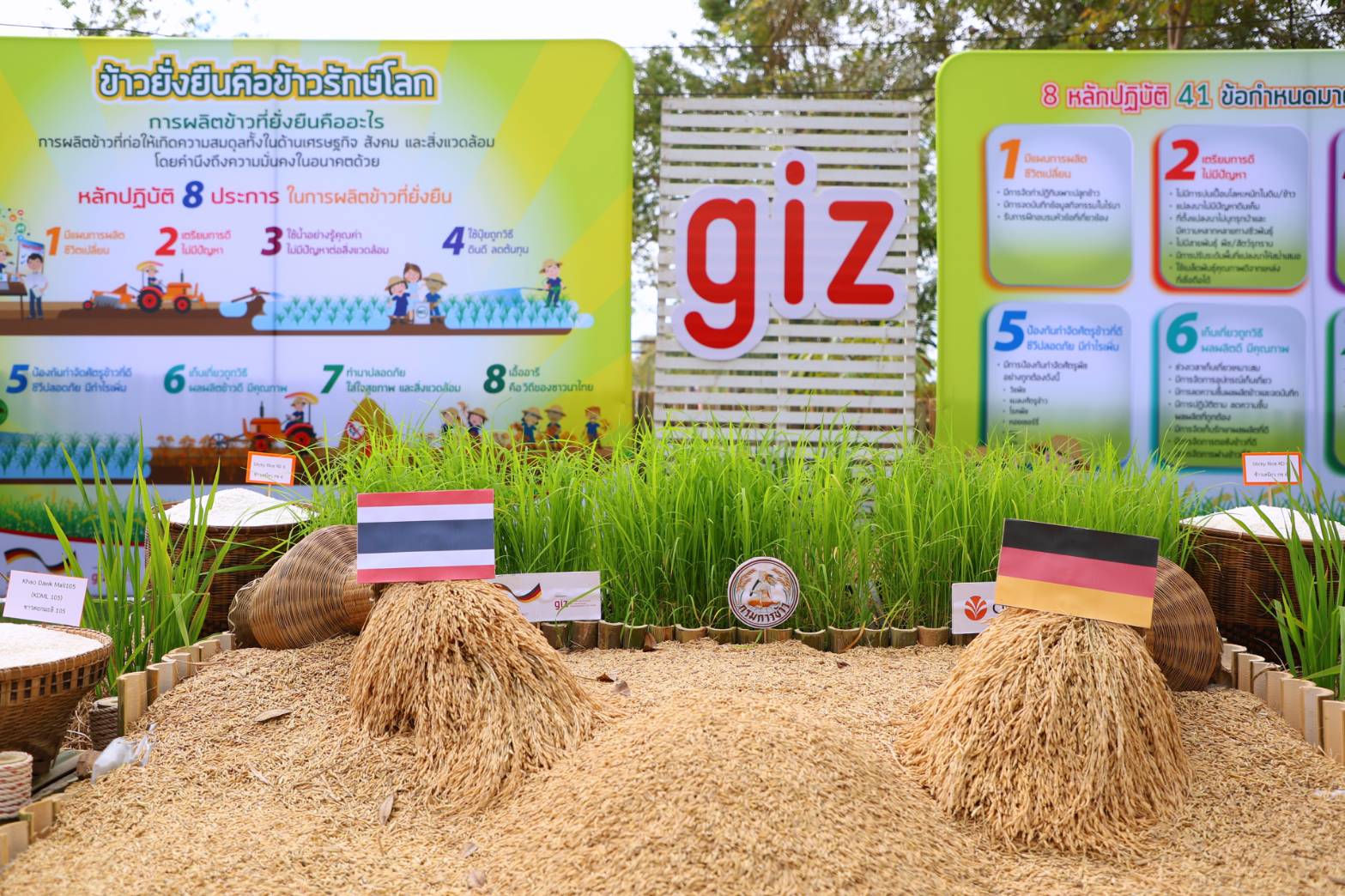
Up to 45,000 farmers joining the ISRL project, currently implemented in Ubon Ratchathani and the northernmost province of Chiang Rai are encouraged to help lower greenhouse gas emissions by implementing climate-smart rice farming practices and technologies, including soil regeneration and laser land levelling to prepare land before sowing to increase yields while also saving water. Communities learn how to produce their own natural composts and biocontrol products, thereby reducing farming costs and the potential risks of chemical fertilisers and pesticides. Crop diversification and agroforestry will also be carried out.
As many as 652,500 rai of rice farmland (an estimated 90,000 hectares) are expected to adopt such farming methods, leading to a reduction of 3.2 million tonnes of CO2 equivalent and 100 metric tonnes of toxic chemicals. The project will also help restore 187,500 rai of plots (an estimated 30,000 hectares) through agroforestry and diversified cropping by the year 2027.
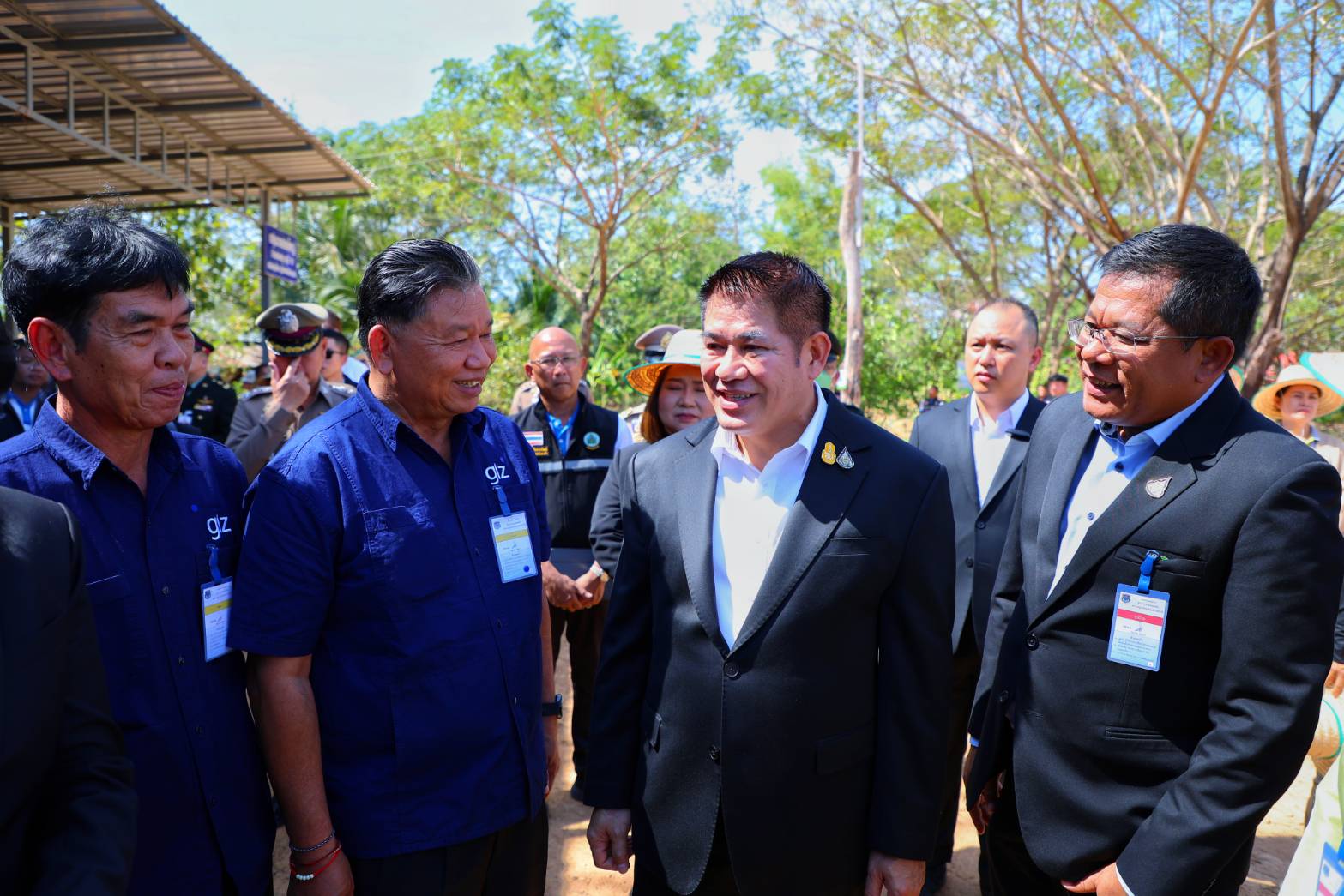
These key farming techniques will enable local communities to effectively reduce not only costs but also chemical use in rice farming, while actively improving soil quality and stabilising the ecosystem in the long run.
Gallery
German Müller
Project Director of ISRL
Email:german.mueller(at)giz.de
Related project news
